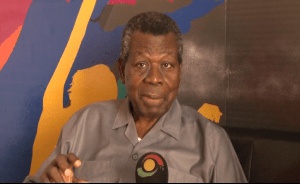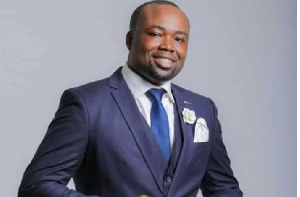A former deputy Governor of the Bank of Ghana (BoG), Emmanuel Asiedu-Mantey has expressed disquiet about some local banks petitioning the president to have the 31 December deadline for the recapitalisation of banks spread over a four year period.
Speaking exclusively to TV3, Asiedu-Martey says he does not support the move.
“I’m totally against the banks going to see the president because I don’t think this is something for the presidency to decide”, he said.
The Bank of Ghana recapitalization requires all banks, local and foreign to have a minimum capital of GHS 400 million, an amount indigenous banks say they cannot raise within the time frame.
Some of the indigenous banks thus met the president at the Jubilee House last week to present a petition for an extension of the deadline for meeting the capital requirement from December 2018 deadline to December 2022.
But the former deputy governor thinks the president’s intervention would amount to undermining the competence of the Bank of Ghana.
“The Bank of Ghana has a board; there are three governors over there, and there is a board of directors composed of very competent people, professionals and people who have distinguished themselves in industry and business and in their own profession, so they are capable of handling this issue”, he observed.
Asiedu-Martey explains that the minimum capital requirement is a rigorous procedure that must have been thoroughly looked at before being fixed at GHS400 million.
“The other thing is the minimum capital is not fixed arbitrarily, a lot of thinking goes into getting the minimum capital fixed”, he explained.
He added the recapitalization is in the interest of the ordinary Ghanaian as it provides some security to savings.
“The central bank’s role is to protect you and me, our savings”.
Meanwhile, based on their shareholders’ funds, about 12 banks are likely to meet the minimum capital requirement of GH¢400 million by the Bank of Ghana far ahead of the deadline since they have more than enough capital in their balance sheet.
The same cannot be said for some indigenous banks. They have therefore made proposals to provide GHS170 million by end of 2018, GHS220 million by end of 2019, GHS280 million by end of 2020, GHS340 million by end of 2021, and GHS 400 million by 2022.
They also warned that any attempt to implement the end of 2018 deadline, may force a takeover of all indigenous banks by foreign investors who have already made proposals to the local banks.
Business News of Monday, 16 April 2018
Source: 3news.com

















